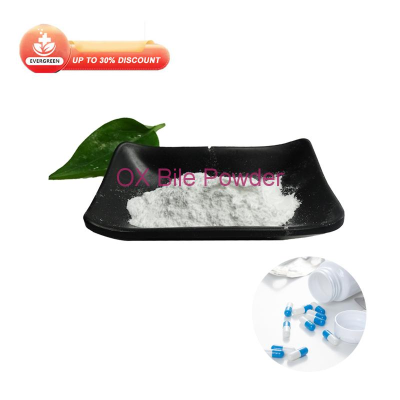-
Categories
-
Pharmaceutical Intermediates
-
Active Pharmaceutical Ingredients
-
Food Additives
- Industrial Coatings
- Agrochemicals
- Dyes and Pigments
- Surfactant
- Flavors and Fragrances
- Chemical Reagents
- Catalyst and Auxiliary
- Natural Products
- Inorganic Chemistry
-
Organic Chemistry
-
Biochemical Engineering
- Analytical Chemistry
- Cosmetic Ingredient
-
Pharmaceutical Intermediates
Promotion
ECHEMI Mall
Wholesale
Weekly Price
Exhibition
News
-
Trade Service
Original title: Professor Tong Weigang of Beijing University of Chemical Engineering, Associate Professor Fan Huaxuan and a number of teams in China found that breast milk can effectively block new coronavirus infection
The study, published online in the journal Duction and Targeted Therapy, entitled "The effect of whey protein on virus infection and replication of SARS-CoV-2 and pangolin coronavirus in vitro", is the first to demonstrate that breast milk can effectively block infection of human cells by the new coronavirus, including by interfering with viral adsorption and entry into cells and inhibiting the nucleic acid polymerase activity of the virus. The study also found that animal whey proteins such as cow and sheep whey protein have anti-neocoviral effects, but the inhibition effect is significantly lower than human whey protein. The results suggest that breastfeeding has a good protective effect against neo-coronavirus in newborns. This paper also excludes the possibility that the anti-neo-coronavirus effect of breast milk comes from antibodies in breast milk, and finds that whey protein can also inhibit the infection and replication of coronavirus in other animals. The above-mentioned research provides a new way of thinking for the development of new anti-neoviral drugs.
in this study, the researchers first infected Vero cells and A549 cells with the new coronavirus fake virus and the latha coronavirus, using human cocoon milk collected two years ago and stored in an 80-degree refrigerator for conservation tests, and found that Colostrocity can significantly inhibit new coronavirus and carpentovirus infection, inhibition rate is close to 100%, half of the effective concentration (EC50) reached 0.02 mg/ml, and colostrhea is non-toxic to cells, and can even promote cell growth. Subsequently, the researchers tested the anti-neo-coronavirus effect of commercially available milk powder, and found that the commercially available milk powder also had good anti-neo-coronavirus effect, although the inhibition effect was relatively low. This suggests that the role of breast milk in suppressing new coronavirus infections is widespread in species.
, the researchers continue to study whether breast milk inhibits the production of live viruses. The results show that breast milk can effectively inhibit Vero cells from producing coronavirus live virus, and the inhibition has dose dependence. After the authors used high temperature and protease K for protein inactivation, the inhibition effect of breast milk decreased significantly, which suggested that breast milk mainly through the protein components to play an anti-neocoviral effect. In addition, the authors tested commercially available milk and sheep granny powder and found that whey proteins from cattle and sheep also had significant anti-neoviral effects. Studies have suggested that lacto-iron protein is the main antiviral component of whey protein. This study found that although lactoxin has a certain anti-neoviral effect, but its inhibition efficiency is low, suggesting that other protein components in breast milk play a major anti-neoviral role.
The rich antibody components in breast milk may have a viral effect, in order to eliminate the possible cross-reaction of IgA antibodies in breast milk on the effects of new coronavirus infection, the researchers used anti-IgA antibodies to medium IgA antibodies in breast milk, and found that anti-IgA antibodies do not affect the role of breast milk to suppress the virus, suggesting that IgA antibodies in breast milk and breast milk inhibit the main components of the new coronavirus.
To further clarify the mechanism by which whey protein inhibits new coronavirus, the researchers intervened with whey protein at different stages of viral infection, and found that whey protein inhibited the adsorption of the virus and its entry into cells, and could inhibit viral replication by inhibiting the activity of the virus's RNA polymerase.
, the study reveals that breast milk is highly resistant to new coronavirus infections. This inhibition mainly works by inhibiting the adsorption of viruses, entering cells, and suppressing viral RNA polymerases. The findings provide a new basis for breastfeeding and the development of new anti-neoviral drugs. Although this study suggests that breast milk in patients with neo-coronary pneumonia may be safe to feed infants and that relevant studies are necessary, this study does not conduct tests in this regard and cannot be used as a basis for feeding infants directly with breast milk in patients with neo-coronary pneumonia.
study was mainly carried out by Professor Tong Weigang's team and Zhuang Hui's academician team, Professor Zhou Yihua's team and Professor Shi Yi's team. Professor Tong Weigang of Beijing University of Chemical Engineering, associate researcher to Guanghui from the Zhuanghui team at Peking University's School of Basic Medicine, and Professor Zhou Yihua of Nanjing Gulou Hospital were co-authors of the paper. Associate Professor Fan Huaxuan of Tong's team, Hong Bixia (master's degree), Associate Researcher Luo Yuxuan of Zhou Yihua's team, and Peng Qi (doctoral student) of Shi Yi's team are the co-authors of this paper. This study also received the help of Wang Youchun researcher and Huang Weijin researcher of China Food and Drug Inspection Research Institute.
article link:







